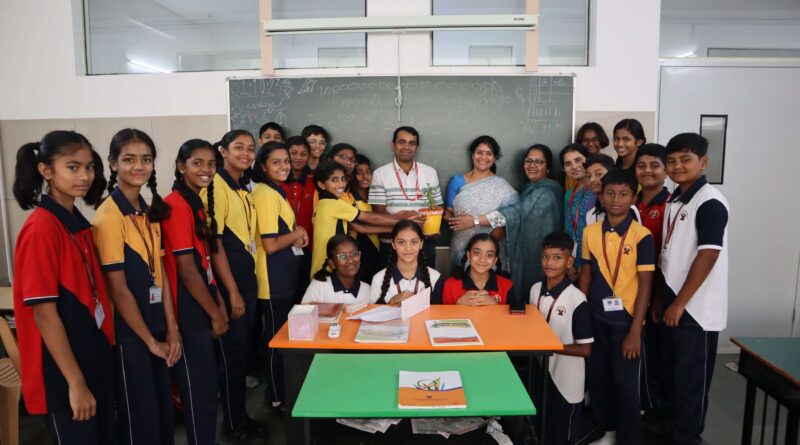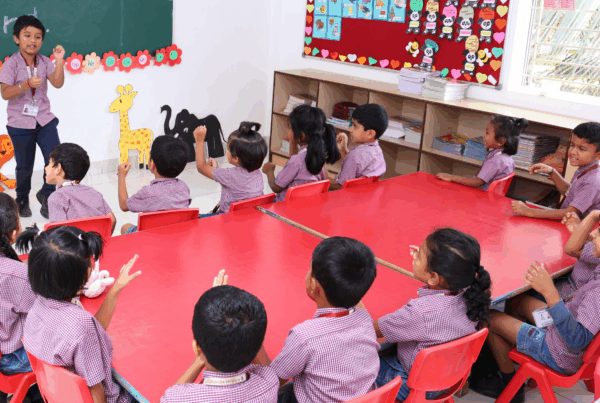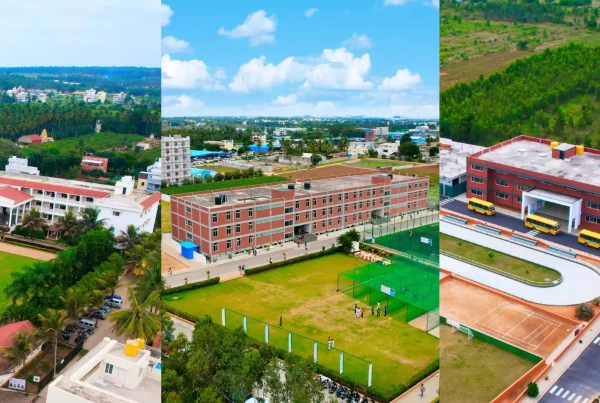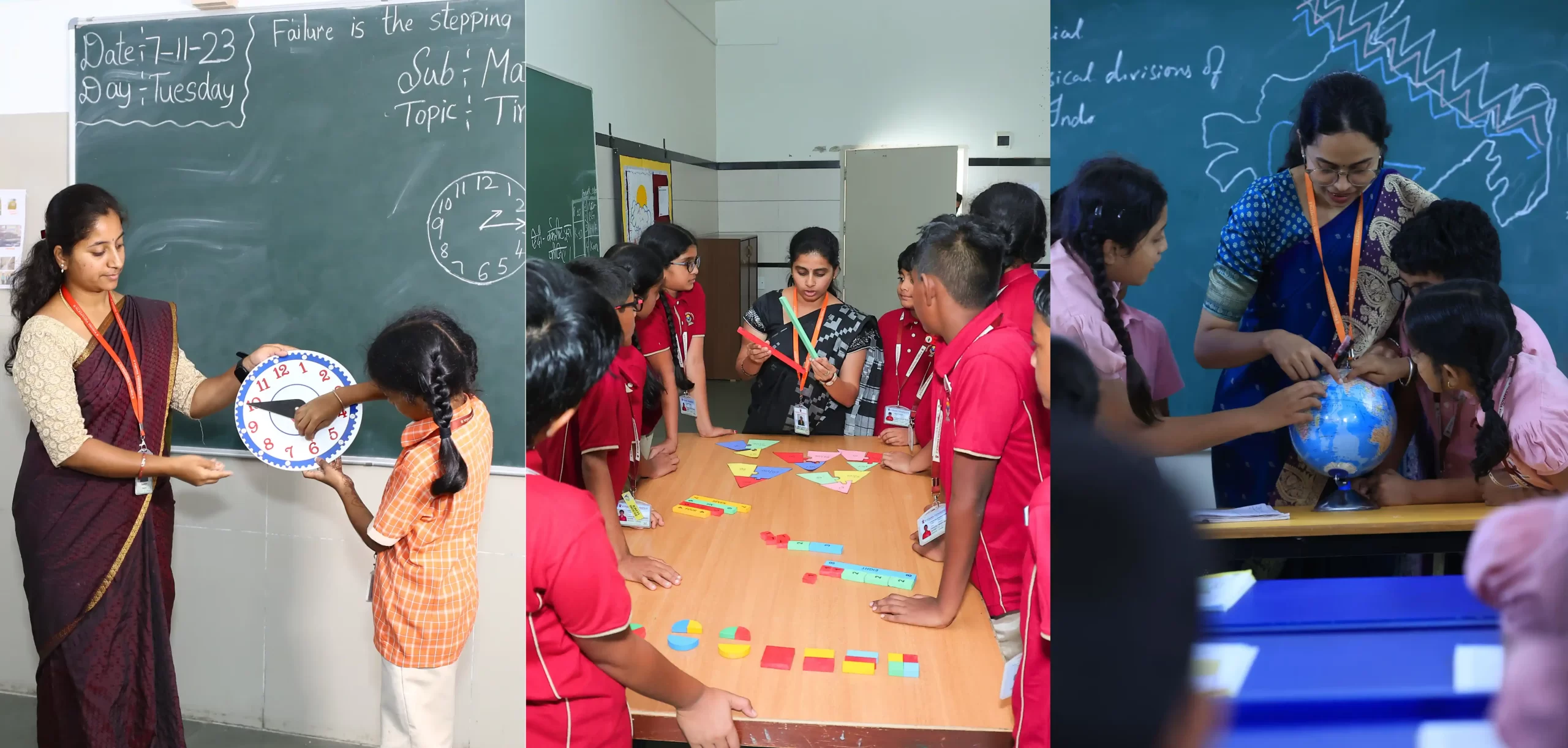Future generations must be taught the need of conserving water as part of sustainable life. Schools have a significant impact on how children think and can help educate kids the value of water conservation. Vishwa Vidyapeeth school is aware of the importance of this purpose and being rated as the best CBSE schools in Bangalore, located in Yelahanka it is our duty to impart this knowledge in children. We’ll look at five interesting and potent lessons for kids about water conservation in this blog.
आचार्यात् पादमादत्ते पादं शिष्यः स्वमेधया।
यस्यां निधिषु वर्तन्ते तां विद्यां स गुरुर्नृणाम्।।
The disciple receives one quarter from the teacher, acquires one quarter through his own intelligence, one quarter through classmates, and the remaining quarter in time through experience.”
This shloka emphasizes the multifaceted nature of learning, attributing knowledge acquisition to the teacher, self-study, interaction with peers, and practical experience.

1. Interactive Workshops and Demonstrations
Learning through interactive workshops and demonstrations is an effective way to engage children and make the concept of water conservation tangible. Schools in Bangalore can organize hands-on activities where children actively participate in experiments related to water usage, wastage, and conservation. For instance, students can create a mini water cycle model, understand the concept of rainwater harvesting, or simulate a drought scenario.
Students will gain a greater understanding of the significance of water conservation and its effects on the environment if they are given the opportunity to see and participate in these processes firsthand. Children are also more likely to retain the information and use it in their daily lives when the learning process is engaging and pleasurable.
2. Storytelling and Visuals
Children love stories and visuals, making storytelling an engaging and powerful tool to teach water conservation. Schools can arrange storytelling sessions that revolve around water conservation themes. The stories can include characters who face water-related challenges and how they come up with innovative solutions to overcome them. This not only sparks children’s imagination but also teaches them valuable lessons about conserving water and the significance of using it wisely.
Additionally, incorporating visuals such as videos and documentaries can enhance the learning experience. These visuals can showcase real-life examples of water scarcity and conservation efforts across the globe, inspiring children to become active participants in preserving this precious resource.
3. School Gardens and Nature Walks
Establishing a school garden can serve as an excellent learning platform for children to understand the water requirements of plants and the importance of using water efficiently. Schools can set up sustainable gardens that use rainwater harvesting and drip irrigation systems.
Additionally, leading nature walks around the school can encourage a closer relationship between children and the natural world. The significance of nearby water sources, the effects of pollution, and the necessity of protecting them can all be covered by teachers during these walks. Students of Vishwa Vidyapeeth school are more likely to become engaged in water conservation if educators help them enjoy the beauty of nature.
4. Water Conservation Competitions and Campaigns
Organizing water conservation competitions and campaigns can create a sense of excitement and encourage students to actively participate in saving water. Bangalore schools must host competitions like “Water Heroes” events where kids are inspired to come up with innovative ideas for water conservation in their homes and communities.
To inform the pupils of the value of water conservation and the methods they may help, awareness campaigns may also be launched. The school can collaborate with local NGOs or environmental groups to create impactful campaigns that reach beyond the school premises. This way, children not only learn about water conservation but also become ambassadors for spreading the message to a broader audience.
5. Involve the Community
Schools should involve parents, guardians, and the local community in their water conservation initiatives. Holding seminars or workshops on water conservation, open to parents and the public, can increase awareness and foster a sense of collective responsibility. Parents, being role models for children, can also be encouraged to implement water-saving practices at home, making the learning experience consistent across different settings.
Additionally, to show off actual instances of water conservation programmes in action, schools can work with local authorities to schedule field visits to water treatment facilities, rainfall harvesting systems, or lakes. Children’s eyes can be opened by this practical learning experience, which can also inculcate a sense of responsibility for water conservation.
We recognise the need of teaching our pupils about water conservation as one of the top schools in Yelahanka. By adopting these five engaging and effective methods, schools can play a crucial role in shaping environmentally conscious and responsible individuals. Teaching water conservation to children is not only an investment in their future but also a step towards creating a sustainable and water-secure world for generations to come.




